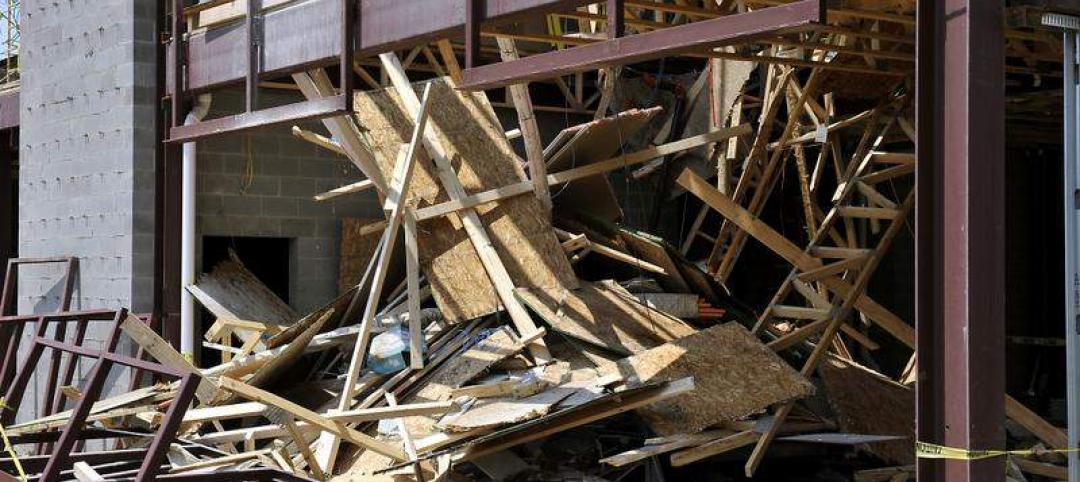Nine associations representing construction contractors, subcontractors, and design professionals petitioned the Office of Federal Procurement Policy (OFPP) to alter how the office handles change orders.
The groups want the Federal Acquisition Regulation (FAR) amended to "make explicit" that before ordering a change to a construction contract, the contracting officer must assure that funds are available to pay for additional work being ordered.
“Our members are facing increasing numbers of instances in which a Contracting Officer will direct a change in the scope of work on a construction project, lacking funds available to pay for the increased costs being imposed upon the contractor,” the associations wrote in a March 18 letter to OFCPP Administrator Anne Rung.
The groups signing the letter included the Design-Build Institute of America, the American Council of Engineering Companies, the American Subcontractors Association, the Associated General Contractors of America, the Mechanical Contractors Association of America, the National Association of Surety Bond Producers, the National Electrical Contractors Association, the Sheet Metal and Air Conditioning Contractors’ National Association and The Surety & Fidelity Association of America.
They also recommended an amendment that would allow contracting officers to continue to make changes in the work within the general scope of the contract, at any time and without notice to sureties, “but only if funds are available to pay the costs of such changes.”
Related Stories
| Sep 20, 2012
AGC awarded federal grant to provide fall-protection safety program
The Associated General Contractors of America will continue to provide fall protection safety training next year after being awarded a federal safety grant.
| Sep 20, 2012
East Lansing officials accused of ignoring unauthorized project that led to partial building collapse
The unauthorized construction of a fifth-floor penthouse on a downtown East Lansing, Mich. mixed-use development led to a partial building collapse earlier this year.
| Sep 20, 2012
Reflective roofs could reduce rainfall in Arizona
Green standards may have to take into account the impact of reflective roofs on rainfall in the desert Southwest.
| Sep 20, 2012
Earth Advantage Institute offers green certification for small commercial buildings
Earth Advantage Institute announced a new green building certification aimed at new or substantially remodeled small commercial buildings built to green standards.
| Sep 14, 2012
To create more pedestrian-friendly neighborhoods, Chicago unveils safety plan
As more urban mixed-use and residential developments aim to encourage residents to walk and use mass transit, cities are addressing pedestrian safety.
| Sep 14, 2012
Worker killed in Brooklyn building collapse; overloaded floor decking blamed
One worker was killed after he and others plunged 40 feet through an unfinished upscale Brooklyn townhouse building.
| Sep 14, 2012
NRCA University offers photovoltaic class
NRCA University will offer a class called “Photovoltaic Roof Systems: Energizing Your Business” Oct. 16 in Philadelphia.
| Sep 14, 2012
Costa Rica’s strict building codes prevent major damage in powerful quake
The relatively little damage from a 7.6 earthquake was due in large part to strict building codes in Costa Rica, a country that has long enjoyed more stability, better governance, and stronger economic development than many of its Central American neighbors.
| Sep 14, 2012
Building codes should require continuous connection from roof to foundation, says IBHS chief
“One of the most effective ways to greatly increase a building’s strength and safety during hurricanes, tornadoes and straight-line windstorms is to be sure the building is tied together properly,” says Julie Rochman, president and CEO of the Insurance Institute for Business & Home Safety (IBHS).
| Sep 7, 2012
Related Companies and unions agree to wage-cutting deal on Hudson Yards
The Related Companies has won wage-cutting agreements with four dozen construction unions in its efforts to save money on the $15 billion development of Hudson Yards.

















